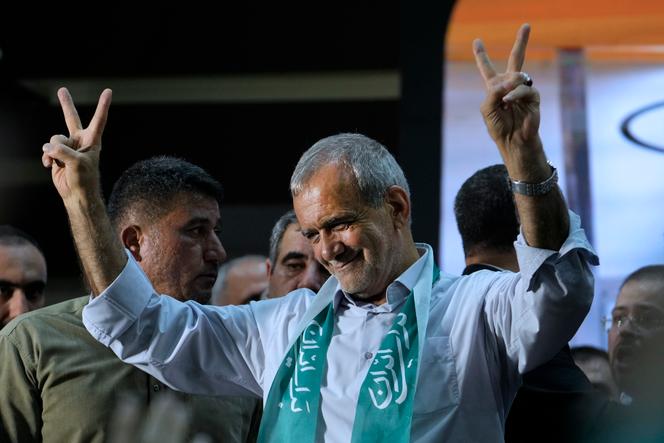


The election campaign is drawing to a close, two days before the June 28 presidential election organized as a matter of urgency following the death of Ebrahim Raisi in a helicopter crash in May. But unlike previous elections in 2021 and 2024, which were largely ignored by Iranians, this one could attract more voters. According to the latest poll by IPSA, an institute close to the government, on June 24, more than 52% of the electorate could turn out to vote.
The renewed interest in this election is partly explained by the participation of Masoud Pezeshkian, the only reformer among the six candidates validated by the Guardian Council. Experts and voters interviewed over the telephone by Le Monde said that his candidacy raises hopes of better management of national affairs, and even of a slight economic improvement, in the face of galloping inflation of 53%, attributed to mismanagement and international sanctions. In recent years, the reformist camp has been marginalized by the regime.
Among the five conservative candidates in the running, Mohammad Bagher Ghalibaf, former mayor of Tehran, and Saeed Jalili, a former nuclear negotiator with the West, are leading the polls alongside Pezeshkian. At this stage, however, none seem likely to win an absolute majority in the first round. Some experts and political activists are speculating that Jalili, known for his rigid, ideological stance, may withdraw in favor of Ghalibaf, a technocrat backed by the Revolutionary Guards, the country's ideological army.
Whichever conservative candidate is chosen, the electoral base of this camp, historically closer to the supreme leader, Ali Khamenei, than to reformers, remains constant. But higher voter turnout has often benefited the reformist camp in Iran. However, the challenge remains great for the latter, as few Iranians believe that the system is reformable and the wounds of the violent repression of the "Women, Life, Freedom" protest movement, which emerged after the death in police custody of the young woman Mahsa Amini in September 2022, remain raw.
In Tehran, Pouya (first name changed for security reasons) talks to his abstentionist friends about the need to vote, despite having boycotted the 2021 and 2024 elections. Aged 35, an engineer working in a factory, he took part in the demonstrations of the "Woman, Life, Freedom" movement and continues to express his dissatisfaction with the regime on social media. "I'm going to vote for Pezeshkian because I'm tired of the collective despair that's been suffocating us since Mahsa Amini's death," he explained. "At this stage, overthrowing this regime is impossible, partly due to the absence of an organized and effective opposition. What's more, boycotting elections has had no effect."
You have 48.18% of this article left to read. The rest is for subscribers only.
